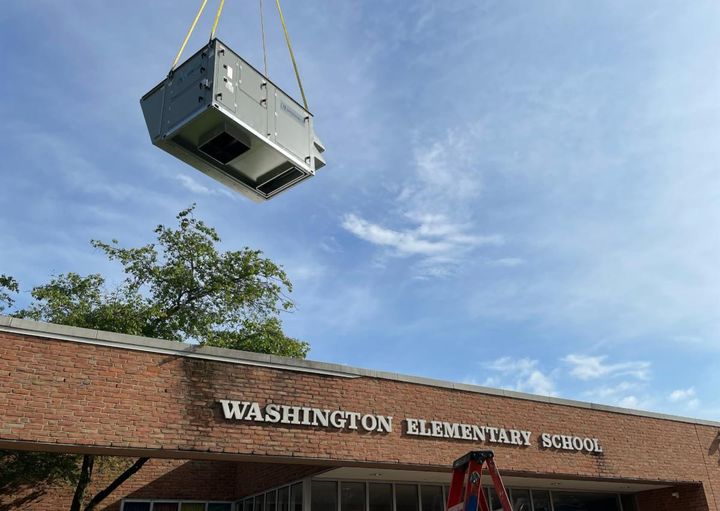UGI Rebates Help Schools Save Money and Energy
11 Sep 2024
As the new school year begins, several districts are welcoming students back to more energy-efficient buildings thanks to UGI’s Commercial Custom Rebate Program. The program has helped schools upgrade their HVAC equipment, reduce energy bills, and support environmental goals.

In the first five years of the program, 21 school districts have received rebates to make cost-effective upgrades. Among them is the Allentown School District, which received over $240,000 in rebates for 32 projects, including new boilers, improved air sealing, better insulation, and building controls. So far, the changes have resulted in more than $220,000 in energy cost savings.
“The UGI rebates make energy efficiency projects more affordable, reducing payback times and creating a win for our customers, contractors, and the environment,” said Michael Schilthuis, Manager of UGI’s Energy Efficiency & Conservation programs.
In Cumberland County, South Middleton School District received a $61,000 rebate for installing demand control ventilation sensors. To date, the upgrades have meant energy cost savings of more than $12,500.
The program’s impact continues to grow, with nearly a dozen more school districts currently implementing upgrades expected to be completed next month.
These projects were completed by McClure Company, a mechanical construction, engineering and energy services firm. UGI works with a number of engineering companies, suppliers, and contractors to help identify and complete rebate-eligible projects.
For more information on the Commercial Custom Rebate Program, UGI Gas commercial customers or their contractors can submit projects for review at: www.UGISaveSmart.com/Commercial. UGI also offers energy efficiency rebates for residential gas customers, as well as UGI Electric residential and commercial customers. Learn more via the Ways to Save section of www.UGI.com.
Natural Gas Delivers for Schools
According to ENERGY STAR®, America’s K-12 schools spend over $8 billion on annual energy costs. The greater use of affordable and clean natural gas by education facilities can reduce electricity, heating, and cooling expenses, helping increase funds available to invest in students and educators.